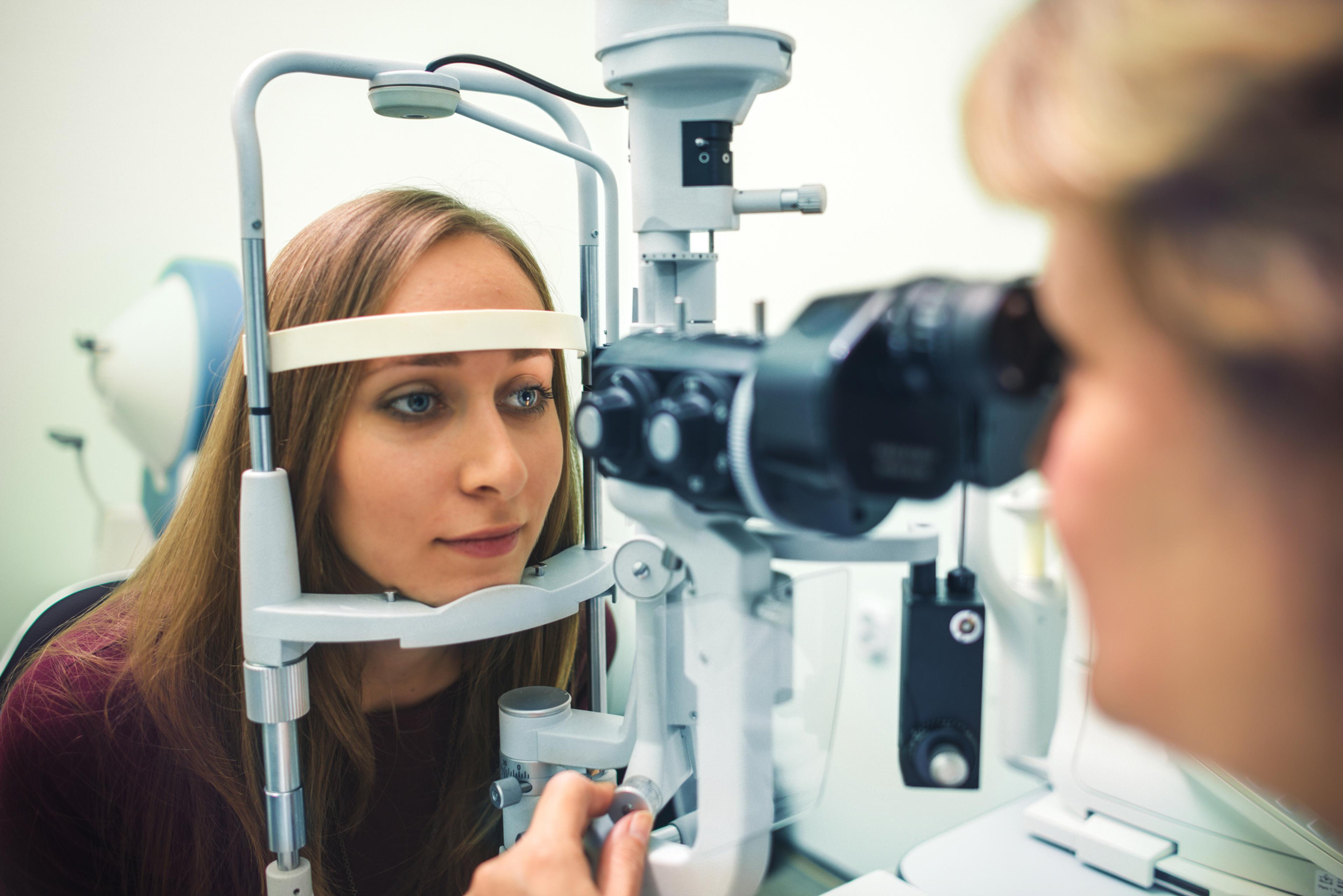Did You Know: The Connection Between Vision Health and Diabetes
A Healthier Michigan
| 3 min read

There are many complications that arise from having diabetes — damage to your heart, blood vessels, nerves and kidneys to name a few. But you may not realize that diabetes can also damage your eyes. In fact, diabetes is the leading cause of new blindness among U.S. adults aged 20-74, according to the Centers for Disease Control and Prevention (CDC).
One of the more common eye issues facing people with diabetes is glaucoma, a condition where pressure in the eye damages the retina and optic nerve. People with diabetes are twice as likely to develop open-angle glaucoma, the most common type, per the CDC. Cataracts, a condition where the lens gets cloudy, are also a concern for people with diabetes. If you have diabetes, you might be at greater risk for developing cataracts depending on how long you’ve had it, according to the American Diabetes Association.
There is also something called diabetic retinopathy, which is an umbrella term for any retina issue caused by diabetes. It occurs when high blood sugar damages your retina—the light-sensitive lining found at the back of your eye.
Diabetic retinopathy facts
Here are some important facts to know about diabetic retinopathy:
Fact no. 1: Diabetic retinopathy may not cause symptoms at first, but early stages of the disease can make it hard for an individual to read or see things far away, symptoms that may come and go.
Fact no. 2: Later-stage symptoms can include blurry vision, floating spots in your vision and blindness.
Fact no. 3: Diabetic retinopathy can lead to vision loss and blindness.
Fact no. 4: Diabetic retinopathy can trigger other eye issues such as diabetic macular edema (DME), in which the blood vessels in the retina leak fluid that causes swelling in a part of the retina known as the macula. Diabetic retinopathy also can lead to glaucoma.
Fact no. 5: Over time, more than half of all people with diabetes will develop diabetic retinopathy; your risk increases the longer you have diabetes.
Fact no. 6: Scheduling regular eye checkups can help your eye doctor find diabetic retinopathy early during a dilated eye exam. This can lead to early treatment, which is crucial.
Fact no. 7: Diabetic retinopathy is usually treated in three primary ways: Injection medicines called anti-VEGF drugs, which can slow down or reverse diabetic retinopathy; laser treatment to shrink the blood vessels and stop leaking; and a type of eye surgery called a vitrectomy.
Diabetic retinopathy prevention tips
Managing diabetes — which includes controlling your blood sugar, blood pressure and cholesterol levels — can help prevent diabetic retinopathy. You can also slow its development by:
- Following a healthy diet.
- Staying physically active.
- Avoiding alcohol and smoking.
- Taking diabetes medicine as prescribed.
If you have diabetes, it doesn’t mean you are destined to lose your vision. In fact, most people with diabetes have minor eye disorders at most. You have to be proactive, though. To prevent diabetes-related eye problems, make sure you keep your blood pressure and blood sugar levels as close to normal as possible. The other important step is getting regular vision checkups.
Many of the above issues don’t immediately impact your vision, which means the only way to catch them early is to get regular eye exams. And early diagnosis and treatment can stop many of these conditions in their tracks or dramatically slow their progress.
Photo credit: Getty Images





